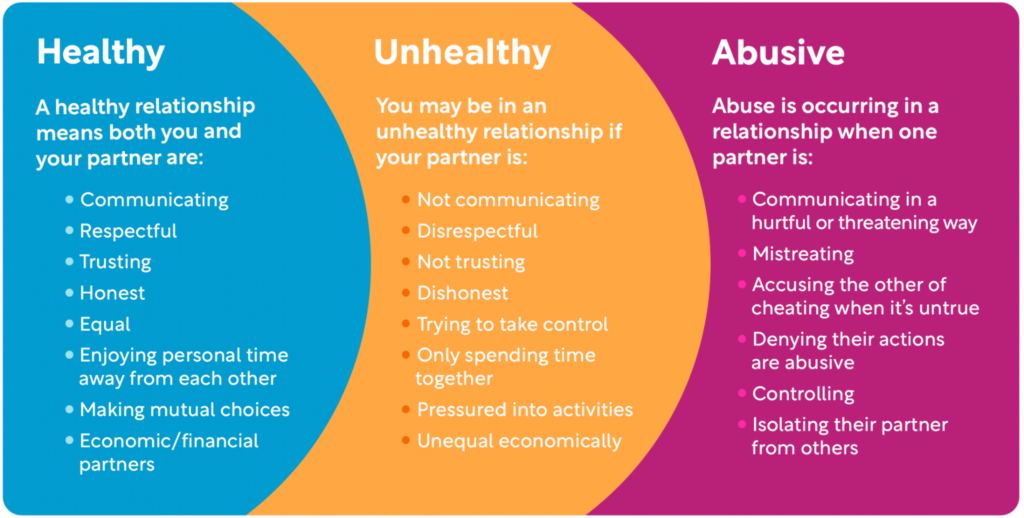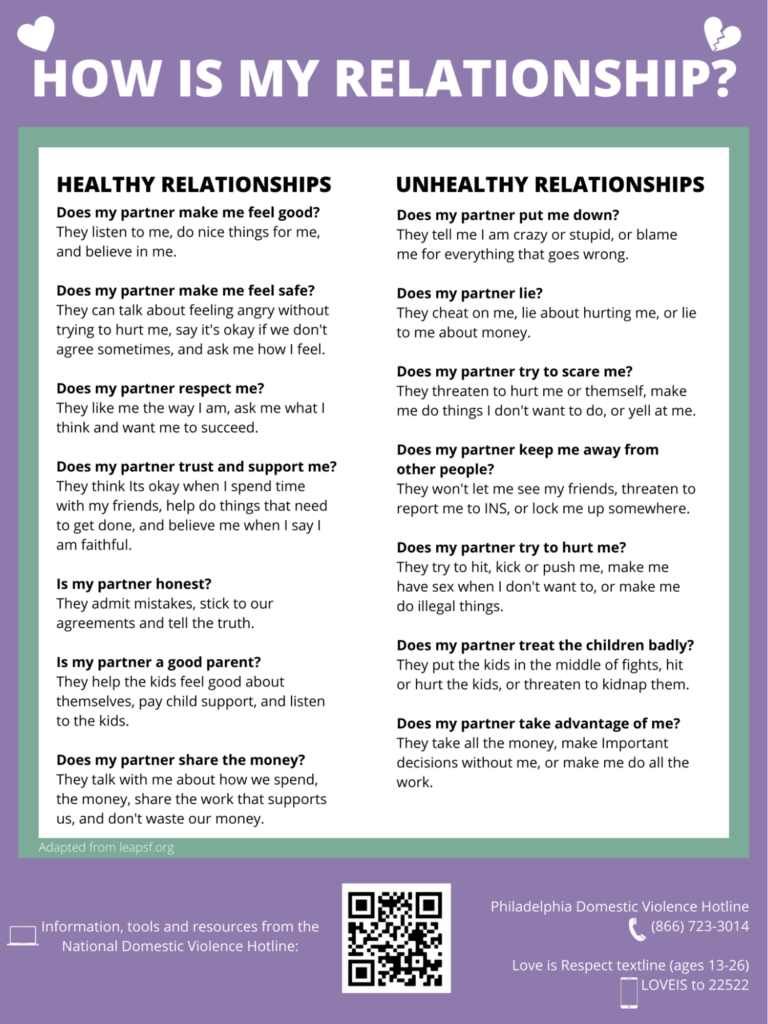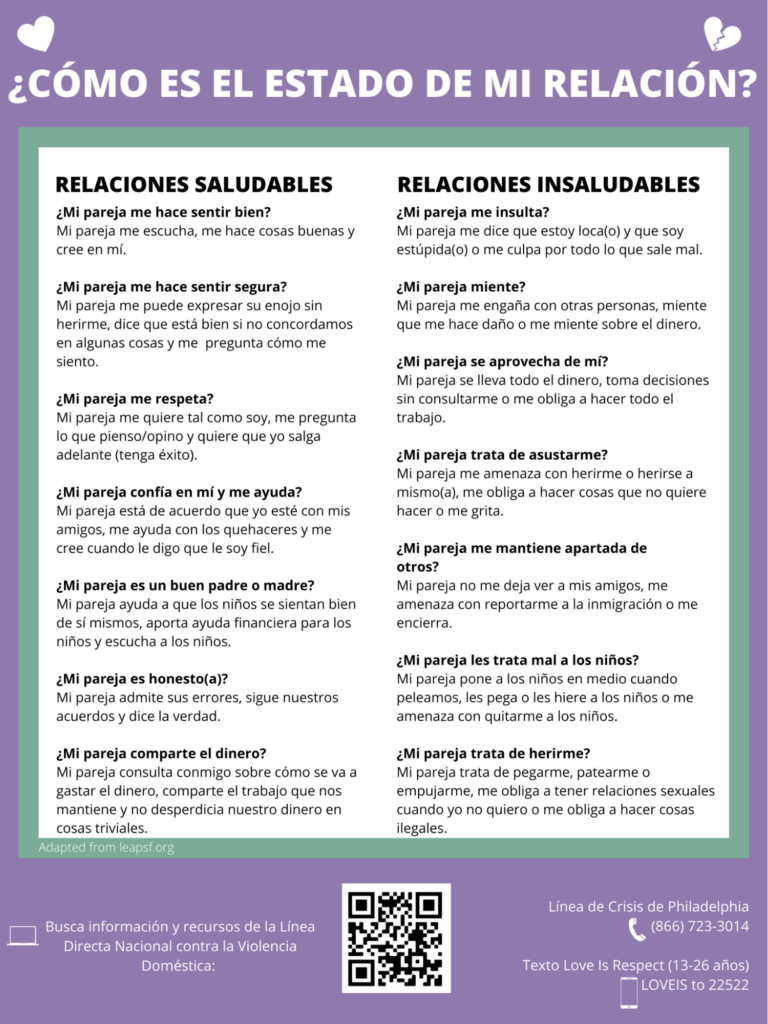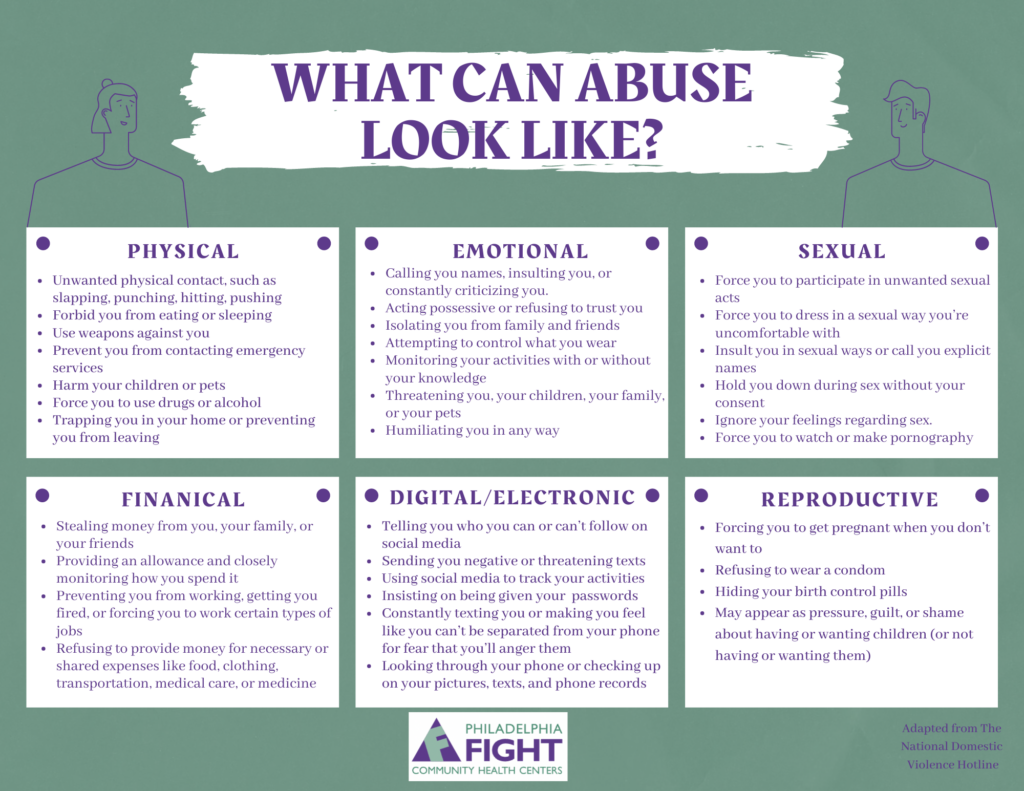What does a healthy relationship look like?
A healthy relationship is a relationship in which both you and your partner feel healthy and safe. This doesn’t mean that arguments will never happen, but both you and your partner should be able to communicate your feelings and feel heard.

Consider using this checklist to assess your relationship health:


Different Types of Abuse
Abuse in a relationship can come in many forms, including physical, emotional, sexual, digital, financial, and reproductive.
Physical: Unwanted physical contact, such as slapping, punching, hitting, pushing.
Emotional: Controlling and manipulative behavior, such as controlling someone’s schedule, controlling how much they contact their friends and family, controlling someone’s appearance.
Sexual: Manipulation into performing or participating in unwanted sexual acts. For example, someone might force another person to have sex when they do not want to.
Digital/electronic: Using social media or other online accounts to control you or keep an eye on you. For example, someone might have another person’s account details and watch their personal activity.
Financial: Controlling behavior by using money. For example, someone might control another person’s money and tell them how to spend it.
Reproductive: When one person tries to control another person’s reproductive rights, such as forcing them to get pregnant when they don’t want to. For example, they might refuse to wear a condom or hide the birth control pills.


Cycle of Violence
Understanding the cycle of violence can be crucial in stopping abusive relationships. There are three stages to the cycle of violence:
- First is the tension building phase. In this phase, the abuser gets edgy and tension begins to build up. This is where the victim may feel like they are walking on eggshells.
- Second is the actual explosion phase where the physical abuse occurs. It can last from a few minutes to several hours.
- Third is the honeymoon phase. The perpetrator may be sorry or act like nothing happened; but is still interested in making up and may even promise never to do it again. However, the tension almost always starts to build again, thus continuing the cycle.
It’s important for you to be aware that any form of abuse will not go away on its own. That’s why it’s called a cycle. Sometimes the abuse will get worse with each cycle and can result in serious injury or even death.

I think I might be in an abusive relationship. What do I do?
First, consider calling the Philadelphia Domestic Violence Hotline (866-SAFE-014 or 866-723-3014). It is hard to recognize if the relationship is abusive and even harder to do something about it. The most important thing to do is to make a plan. Click on this link for action steps you might take (Should we break up? – love is respect). If you decide to end the relationship with the abuser, make sure that you don’t do it in person, because they might get angry or violent. Leaving an abusive relationship can be dangerous so it’s really important to have a plan. Visit these websites for more information on how to make a plan:
Domestic Violence Support | The National Domestic Violence Hotline
Healthy relationships for young adults | love is respect
From Domestic Violence Hotline
I think I might be an abuser. What do I do?
Start with physically separating yourself from the person you think you’re abusing. Next, changing your behavior is a difficult process, but can be done with the support of friends, family, and professional help. Tell your primary care doctor that you are interested in changing and professional help and they can connect you with a professional program. Visit these websites for more information:


